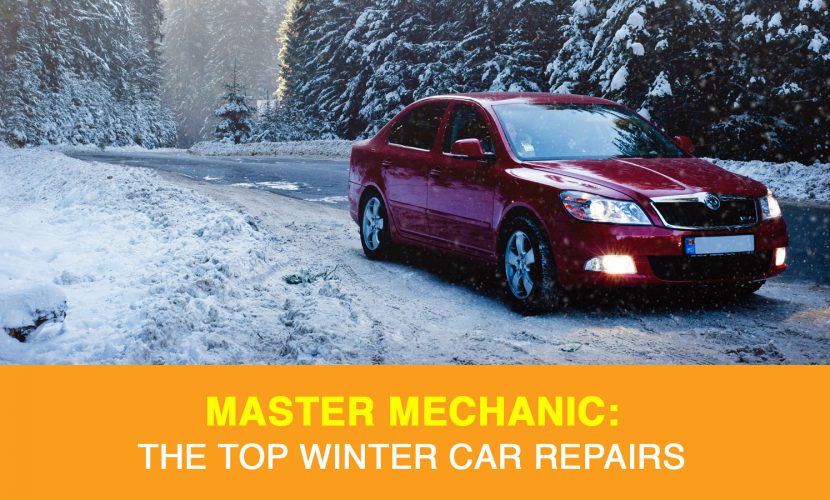
MASTER MECHANIC: THE TOP WINTER CAR REPAIRS
At Master Mechanic, when the temperature begins to drop during fall and winter months, we see an increase in appointments for a few common car repairs. That’s because regardless of the make or model of vehicle you drive, exposure to extreme cold, moisture, and poor road conditions can be unforgiving. Surprise, surprise.
From car heaters that give way to headlights that stop working, some car repairs are more common during winter months than others. We caught up with a Master Mechanic to discuss the top winter car repairs you should know about and some of the precautions you can take to avoid a costly mechanic bill.
A FAILED HEATING SYSTEM
A failed heating system during winter months is common for two main reasons.
- As a mechanical system that probably only operates for part of the year–and remains dormant for the rest–it’s more susceptible to unexpected damage.
- Since most of us don’t turn our heating system on until the temperature drops, we may not discover an issue that actually began much earlier.
To understand what causes a heating system to fail, you first need to understand the basics of how it works. A vehicle’s heating system relies on the engine coolant system and the cabin air circulation system working in sync. When a heating system fails, it’s usually because of blockage in the heater core caused by debris from the radiator.
While it’s usually easy to repair, left unattended, a blockage in your heating system could lead to an overheated engine. Our advice? Get it looked at sooner than later to avoid a bigger issue.
WINDSHIELD WIPER MOTOR REPLACEMENT
Heavy snow, slush, and rain aren’t easy on any part of your car. They’re especially rough on your windshield wipers. Constantly in use, and consistently pushed to their limits in the winter, it’s no surprise that this time of year is when windshield wiper motors tend to fail.
A windshield wiper motor has many individual components that can fail. Whether it’s a simple electrical fuse replacement or a full motor swap, the consequences of non-functioning wiper blades is the same: reduced visibility. We advise getting this looked at ASAP and avoiding driving in any wet conditions until you do.
A CRACKED WINDSHIELD WASHER TANK
Unlike the first to items on our list, this one is a bit more preventable but certainly isn’t avoidable. Windshield washer fluid–especially the winter variety–is designed to withstand cold temperatures. Even regular wash fluid typically has a freezing point of minus 35°C. While most of us know to only use windshield washer fluid, at Master Mechanic, we regularly see clients that try to top-off their tank with water in a pinch. Since water has a much higher freezing point than washer fluid, this is a perfect recipe for a cracked windshield washer tank.
OIL COOLER LINE REPLACEMENT
Oil cooler lines are another common vehicle repair we see at Master Mechanic when winter rolls around. This is a repair that is avoidable–in theory.
When an oil cooler line needs to be replaced, it’s usually because of damage to threads caused by road salt. As you drive in winter snow and slush, the salt or magnesium-chloride can stick to the undercarriage of your car. Since it’s metallic, exposed threads on your oil cooler line will corrode and loosen over time. You may notice oil leaks, low oil levels, or if left unrepaired, an overheating engine.
Most common winter car repairs can be avoided by sticking to your vehicle service schedule. At Master Mechanic, we’re trained to spot early symptoms of the above winter car repairs and can always provide advice to save you the most money in the long run.
If you have any questions about your car or would like to schedule an appointment, don’t hesitate to contact your local Master Mechanic.

